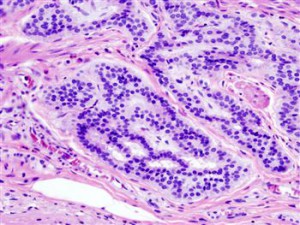
BOWEL screening reduces the number of deaths from bowel cancer in Scotland by more than 25 per cent, according to new research.
Researchers in Scotland found that bowel cancer deaths were cut by 27 per cent among those who had attended screening compared with those who did not.
Bowel cancer screening uses the faecal occult blood test (FOBt) which is mailed to people to carry out at home.
People post a series of small stool samples to a lab to be tested for traces of hidden blood which could be an early sign of bowel cancer.
The study, funded by the Scottish Government Health Department, is the first to show the real impact of using the FOBt in a population-based screening programme.
The results confirmed the findings of randomised controlled trials which were conducted when FOBt was proposed as a method of screening for bowel cancer.
Study author Professor Robert Steele, based at the Bowel Screening Research Centre in Dundee, said: “For the first time, we can see the effects of a FOBt-based colorectal cancer screening programme in the real world of the NHS.”
More than 370,000 people aged 50-69 from three of Scotland’s 14 health boards were invited to take part in a population-based pilot study of bowel screening, before a national programme was introduced.
Symptoms
FOBt kits were sent to these people through the post and returned to a lab for analysis.
Researchers studied this screening group alongside a control group of the same size who were from health boards not taking part in the pilot study but had similar bowel cancer death rates.
The results showed that among those invited for screening, there was a 10 per cent reduction in bowel cancer deaths compared with those not invited.
But researchers pointed out that this is an underestimate since 40 per cent of those invited for screening did not actually take up the invitation – the reduction in bowel cancer deaths rose to 27 per cent when looking at those who actually completed the cancer test.
When bowel cancer is found at the earliest stage, there is an excellent chance of survival with more than 90 per cent of people surviving the disease at least five years. But if the tumour has spread to other parts of the body when it is diagnosed, just over six per cent survive their disease this long.
Bowel cancer is the third most common cancer in the UK- around 40,000 people are diagnosed with the disease each year in the UK.
Hazel Nunn, head of health information at Cancer Research UK, said: “The screening programme can pick up cancers at an early stage before they have any noticeable symptoms and can detect growths in the bowel before they develop into cancer. Without the screening programme it’s likely that many of these cancers and growths would not have been found for another few years, by which time they would be harder to treat.
“So it’s really important to take up the opportunity to use the free bowel screening kit when it comes through your door. Also if you notice changes to your bowel habit like blood in your poo, looser, more frequent bowel movements lasting more than three weeks, don’t delay – go see your doctor.”
Dr Jane Cope, director of the NCRI, said: “These figures are evidence that the bowel cancer screening programme is helping to lower the number of deaths from the disease.
“It’s expected that when all of the national screening programmes across theUKhave been up and running for a couple of years, that similar results will be seen for the whole of the UK.”

